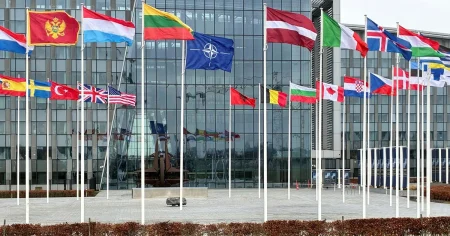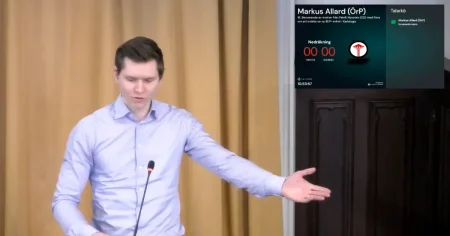The current Swedish electoral system permits non-citizens who have maintained residency in Sweden for a continuous period exceeding three years to participate in municipal and regional elections. Ebba Busch, leader of the Christian Democrats (Kristdemokraterna, KD), contends that this three-year qualification period is insufficient and advocates for a governmental review of the existing regulations. This argument stems from a concern that individuals who haven’t fully integrated into Swedish society and lack a long-term commitment to the nation are influencing local political decisions. Busch’s position reflects a broader debate about the balance between inclusivity and safeguarding national interests in democratic processes.
Busch’s primary concern revolves around the potential impact of a relatively short residency requirement on the integrity and direction of local governance. She posits that individuals who have only resided in a municipality for a few years might not possess a sufficient understanding of local issues, long-term community needs, or the implications of their electoral choices. This raises questions about the extent to which their voting decisions are informed by a genuine commitment to the community’s well-being, as opposed to more transient or personal considerations. The underlying apprehension is that such a system could potentially lead to policy decisions that are not aligned with the long-term interests of the municipality and its established citizenry.
Furthermore, Busch highlights the potential for significant demographic shifts resulting from large-scale immigration to influence local election outcomes. She suggests a scenario where a substantial influx of individuals from a particular country, newly eligible to vote after the three-year residency period, could drastically alter the political landscape of a municipality. This, she argues, could lead to a disconnect between the newly elected local government and the pre-existing population’s values and priorities. While acknowledging that such a scenario hasn’t yet materialized in Sweden, Busch’s argument emphasizes the perceived vulnerability of the current system to such potential shifts. This concern reflects a broader anxiety about the potential impact of rapid demographic change on social cohesion and political stability.
The debate sparked by Busch’s proposal also touches upon the fundamental principles of democratic representation and civic engagement. On one hand, extending voting rights to long-term residents, even non-citizens, can be seen as a way to foster integration and encourage active participation in local affairs. It recognizes that individuals who contribute to the community through taxes, employment, and social engagement should have a voice in shaping local policies that directly affect their lives. This perspective aligns with the idea that local governance should be responsive to the needs of all residents, regardless of their citizenship status.
On the other hand, the argument for a longer residency requirement or even restricting voting rights to citizens only rests on the principle that full political participation should be tied to a deeper level of commitment to the nation and its political system. This view emphasizes the importance of shared values, cultural understanding, and a long-term stake in the country’s future as prerequisites for responsible and informed political decision-making. Proponents of this perspective argue that citizenship confers a unique set of rights and responsibilities, including the right to vote, which should be reserved for those who have fully embraced the national identity and its associated obligations.
The current Swedish regulations also extend voting rights in local elections to citizens of other European Union (EU) countries, Norway, and Iceland residing in Sweden. This reflects the principle of reciprocity within the European Economic Area and acknowledges the close social and economic ties between these nations. However, Busch’s proposal specifically targets non-citizens outside of this framework, raising questions about the rationale for differentiating between these groups. This distinction underscores the complexities of defining the boundaries of political participation in an increasingly interconnected world, where notions of citizenship and national identity are constantly evolving. The debate surrounding voting rights for non-citizens is likely to continue as societies grapple with the challenges of integrating diverse populations and ensuring equitable representation in democratic processes.














